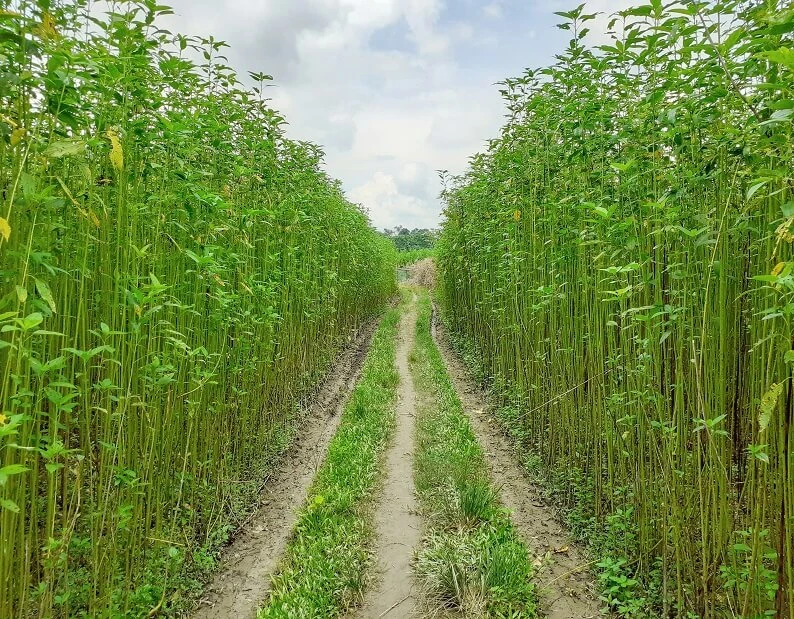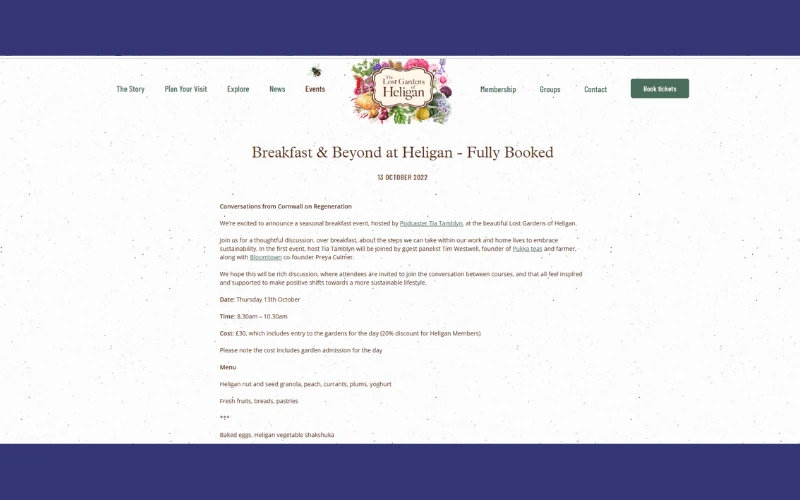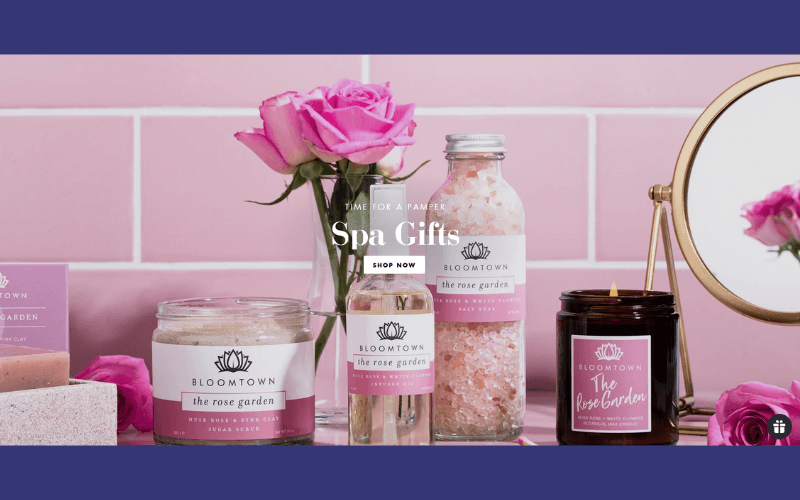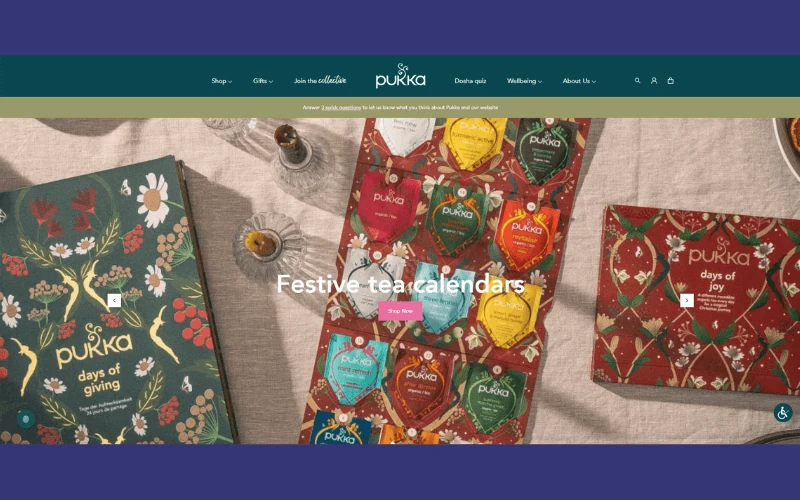We were lucky enough to bag a seat at the first sustainability in business event at Heligan. Hosted by podcaster, mindful cook and mum of three Tia Tamblyn, the event brought together businesses and individuals to discuss sustainability.
Tia was joined by Pukka Tea co-founder Tim Westwell and Preya Culmer, founder of ethical beauty brand Bloomtown.
Greeted with freshly brewed coffee, delicious pastries, fruits, yogurts and granola on the menu, the atmosphere was instantly warm and welcoming.
Sustainability in business event Heligan
Ramon Van de Velde, Heligan’s Managing Director, opened the event with an introduction to the gardens. He stressed that while honouring its past, the 200 acre garden also looks to the future in how it operates, with a focus on sustainability, innovation and regeneration.
Tia’s introduction highlighted the shift in five key areas of our society, all of which impact the environment:
- Knowledge
- Technology
- Science
- Culture
- Our understanding
Nature’s kitchen
We also heard from Head of Hospitality and Executive Chef, Nat, who was introduced as ‘Chief Alchemist’. As Nat excitedly shared some of the dishes they’ve created, it was clear to see why.
“We’ve got our own natural honey, herbs, fruits and vegetables here,” she said. “It’s like a Christmas every day when I’m given fresh produce from the Gardens.”
Nat and her team also strive to reduce food waste. “We recently tried experimenting with fruit peels. We fermented left over pineapple skins, leaving them in sugar for a few weeks before adding alcohol. The resulting drink was amazing!”
Innovation in beauty products
Next up was Preya, whose eco-friendly beauty business Bloomtown is the first certified palm-oil-free company in the UK.
“Palm oil is a key ingredient in most beauty products,” she explained, “but palm oil plantations are linked to deforestation and the destruction of endangered species’ habitats. Orangutans, elephants and rhinos are all being misplaced by the destruction of virgin rainforests.”
After years travelling around India, Thailand and Bali, Preya and her husband Med learned how to make soap using traditional methods. They launched the beauty business from their kitchen in Cornwall in 2016. They now sell online through their own website, Etsy, Not on the High Street and independent retailers.
“It can be expensive to do things sustainably,” Preya said, acknowledging the higher costs of palm oil alternatives. “Yes, it costs more to pay fair wages, grow products organically, and source raw materials responsibly, but we can’t keep going with cheap and convenient.”
Herbal warriors
Pukka’s Tim Westwell also began in a kitchen, working closely with co-founder Sebastian Pole to unlock the power of plants through a range of organic herbal teas and supplements.
“We wanted to create a happier and healthier world,” he said simply. “You know what we’re like in this country. Put the kettle on, have a cuppa and a good chat. Herbs can bring people together. They also have medicinal qualities.”
“I always did business using instinct,” Tim continued. “When we began working with Unilever, they had marketing people looking at the data. The data is supposed to show what people want. But people don’t know what they need. We have responsibility to take people on that journey.”
I was reminded here of the famous Henry Ford quote:
“If I had asked people what they wanted, they would have said a faster horse.”
So innovation can change behaviour and reveal untapped demand.
What next?
The event closed with a brief Q and A session, with delegates discussing the conflict between the cost of living crisis and environmental responsibility.
“It’s not just about being sustainable in business,” Preya said. “It’s also in our personal lives. The challenge can seem overwhelming, but we have to give young people (and ourselves) hope. If we all make small changes, big things happen.”
The event ended on a positive note, with speakers agreeing that things are changing.
People are beginning to ask more questions: where do our favourite products come from? How are they made? What impact do they have on our world? Who makes them?

Here at GoJute we’re proud of our ethics and environmental policy. Jute is 100% biodegradable, our factory in India is SEDEX-accredited, and we strive daily to minimise our impact on the environment.
But we can always do more.
Tim Westwell’s closing remarks summed it up perfectly:
“As Gandhi said, be the change you wish to see in the world.”






